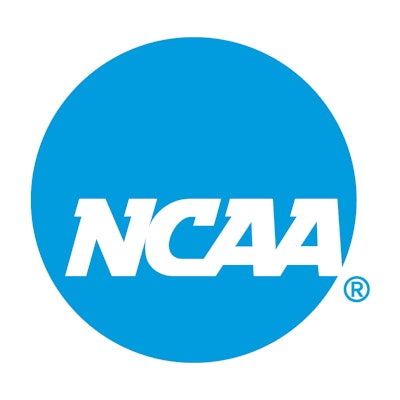
The NCAA's Board of Governors voted Wednesday evening to agree to settlement terms in the House v. NCAA and related antitrust cases, thus allowing schools to pay players and bringing to an end the NCAA's decades-long amateurism model, sources told ESPN.
According to the network, the NCAA joins the Atlantic Coast Conference, Big 12 and Big Ten, which each voted to accept the settlement over the past two days. The remaining two power conference defendants named in the lawsuit — the SEC and Pac-12 — are expected to vote to approve the terms later this week. Leagues need only a majority vote to approve of the current terms.
The NCAA's board did not vote unanimously Wednesday, a source told ESPN.
As reported by ESPN's Pete Thamel and Dan Murphy, the settlement terms state the NCAA will provide more than $2.7 billion to former athletes over the next decade for back damages related to the association's name, image and likeness restrictions, according to sources. "The conferences also agreed to create a forward-looking system that will allow schools to pay roughly $20 million per year in permissive revenue sharing to athletes" Thamel and Murphy wrote. "Those direct payments, an unprecedented paradigm shift in college sports, would likely begin in fall 2025."
All Division I athletes will have months to review the terms and decide if they want to object or opt out of the class action settlement, the authors wrote.
"By settling, the schools and the NCAA avoid going to trial, where they could have been on the hook for damages in excess of $4 billion if they lost, which legal experts considered a likelihood considering the NCAA's recent poor record in court cases," Thamel and Murphy reported. "According to sources, the plaintiffs will also agree to dismiss two other pending antitrust cases against the NCAA that could have potentially added billions of dollars in damages to an already daunting total.
"College athletics leaders have widely acknowledged that while a settlement in the House case is a significant step forward, it will not solve all of the legal and governance issues that have destabilized their former business model. While some university leaders are skeptical that the settlement will provide a clear path forward and other college sports leaders took issue with how the financial burden of settlement payments would be shared among conferences, sources have told ESPN that an agreement is widely expected to arrive by the end of the week."
In a joint statement released Thursday, NCAA president Charlie Baker, ACC commissioner Jim Phillips, Big Ten commissioner Tony Petitti, Big 12 commissioner Brett Yormark, Pac-12 commissioner Teresa Gould and SEC commissioner Greg Sankey, stated:
"The five autonomy conferences and the NCAA agreeing to settlement terms is an important step in the continuing reform of college sports that will provide benefits to student-athletes and provide clarity in college athletics across all divisions for years to come. This settlement is also a road map for college sports leaders and Congress to ensure this uniquely American institution can continue to provide unmatched opportunity for millions of students. All of Division I made today's progress possible, and we all have work to do to implement the terms of the agreement as the legal process continues. We look forward to working with our various student-athlete leadership groups to write the next chapter of college sports."





































